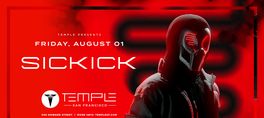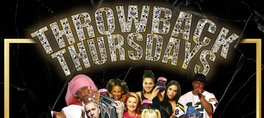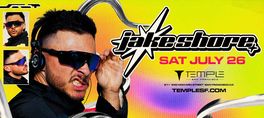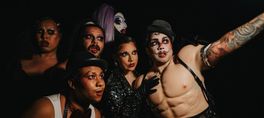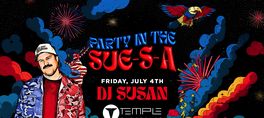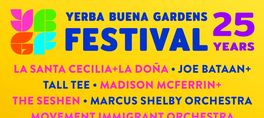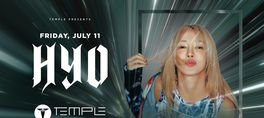Dr. David Morrison (of NASA’s Ames Research Center and the SETI Institute) will give a free, illustrated, non-technical talk on:
The Chelyabinsk Meteor: Can We Survive a Bigger Impact?
in the Smithwick Theater at Foothill College, in Los Altos.
The talk is part of the Silicon Valley Astronomy Lecture Series, now in its 14th year.
What would happen if an asteroid collided with the Earth? On February 15, 2013, a rocky projectile entered the Earth’s atmosphere traveling at more than 11 miles per second. It was about 65 feet in diameter, or half the diameter of the impact of 1908, which flattened a thousand square miles of Siberian forest. Its terminal explosion, at an altitude of 14 mi, released energy of about half a megaton, equivalent to a couple dozen Hiroshima-sized atom bombs. About two minutes later, the shock wave reached the ground in Chelyabinsk, Russia, breaking windows and injuring about 1500 people from flying glass. Since the impactor approached the Earth from very near the direction of the Sun, it could not have been seen by any ground-based optical telescope of any size. It therefore struck without warning. Has this event served as a kind of cosmic wake-up call for planetary defense? NASA recently announced a 'grand challenge" to find all asteroids that could threaten human populations, and to figure out how to deal with them. David Morrison will discuss the Chelyabinsk impact and evaluate ways we might meet the grand challenge to protect our population from space impacts.
Dr. David Morrison, an astrobiologist and planetary scientist, is the Director of the Carl Sagan Center for Study of Life in the Universe at the SETI Institute in Mountain View. He has been an international leader for two decades in defining the asteroid impact hazard and planning approaches to planetary defense; in recognition of this work, asteroid 2410 Morrison is named in his honor. Morrison has also made many contributions to teaching astronomy and space science, including authorship of several college textbooks in astronomy and planetary science. He is a popular writer and public lecturer, promoting a scientific and fact-based perspective about such topics as the evolution-creationist conflict and climate-change denialism. Recently he was awarded NASA Exceptional Achievement medal for using science to counteract public fears about the end of the world in December 2012.
Foothill College is just off the El Monte Road exit from Freeway 280 in Los Altos. For directions and parking information, see: http://www.foothill.edu/news/transportation.php
For a campus map, see: http://www.foothill.edu/news/maps.php
The lecture is co-sponsored by:
* NASA Ames Research Center
* The Foothill College Astronomy Program
* The SETI Institute
* The Astronomical Society of the Pacific.
We expect large crowds, so we ask people to try to arrive a little bit early to find parking. The lecture is free, but there is a charge of $3 for parking and exact change is appreciated.
NOTE: Past Silicon Valley Astronomy Lectures are now available free on YouTube, at the series' own channel at: http://www.youtube.com/user/SVAstronomyLectures/
show less
The Chelyabinsk Meteor: Can We Survive a Bigger Impact?
in the Smithwick Theater at Foothill College, in Los Altos.
The talk is part of the Silicon Valley Astronomy Lecture Series, now in its 14th year.
What would happen if an asteroid collided with the Earth? On February 15, 2013, a rocky projectile entered the Earth’s atmosphere traveling at more than 11 miles per second. It was about 65 feet in diameter, or half the diameter of the impact of 1908, which flattened a thousand square miles of Siberian forest. Its terminal explosion, at an altitude of 14 mi, released energy of about half a megaton, equivalent to a couple dozen Hiroshima-sized atom bombs. About two minutes later, the shock wave reached the ground in Chelyabinsk, Russia, breaking windows and injuring about 1500 people from flying glass. Since the impactor approached the Earth from very near the direction of the Sun, it could not have been seen by any ground-based optical telescope of any size. It therefore struck without warning. Has this event served as a kind of cosmic wake-up call for planetary defense? NASA recently announced a 'grand challenge" to find all asteroids that could threaten human populations, and to figure out how to deal with them. David Morrison will discuss the Chelyabinsk impact and evaluate ways we might meet the grand challenge to protect our population from space impacts.
Dr. David Morrison, an astrobiologist and planetary scientist, is the Director of the Carl Sagan Center for Study of Life in the Universe at the SETI Institute in Mountain View. He has been an international leader for two decades in defining the asteroid impact hazard and planning approaches to planetary defense; in recognition of this work, asteroid 2410 Morrison is named in his honor. Morrison has also made many contributions to teaching astronomy and space science, including authorship of several college textbooks in astronomy and planetary science. He is a popular writer and public lecturer, promoting a scientific and fact-based perspective about such topics as the evolution-creationist conflict and climate-change denialism. Recently he was awarded NASA Exceptional Achievement medal for using science to counteract public fears about the end of the world in December 2012.
Foothill College is just off the El Monte Road exit from Freeway 280 in Los Altos. For directions and parking information, see: http://www.foothill.edu/news/transportation.php
For a campus map, see: http://www.foothill.edu/news/maps.php
The lecture is co-sponsored by:
* NASA Ames Research Center
* The Foothill College Astronomy Program
* The SETI Institute
* The Astronomical Society of the Pacific.
We expect large crowds, so we ask people to try to arrive a little bit early to find parking. The lecture is free, but there is a charge of $3 for parking and exact change is appreciated.
NOTE: Past Silicon Valley Astronomy Lectures are now available free on YouTube, at the series' own channel at: http://www.youtube.com/user/SVAstronomyLectures/
Dr. David Morrison (of NASA’s Ames Research Center and the SETI Institute) will give a free, illustrated, non-technical talk on:
The Chelyabinsk Meteor: Can We Survive a Bigger Impact?
in the Smithwick Theater at Foothill College, in Los Altos.
The talk is part of the Silicon Valley Astronomy Lecture Series, now in its 14th year.
What would happen if an asteroid collided with the Earth? On February 15, 2013, a rocky projectile entered the Earth’s atmosphere traveling at more than 11 miles per second. It was about 65 feet in diameter, or half the diameter of the impact of 1908, which flattened a thousand square miles of Siberian forest. Its terminal explosion, at an altitude of 14 mi, released energy of about half a megaton, equivalent to a couple dozen Hiroshima-sized atom bombs. About two minutes later, the shock wave reached the ground in Chelyabinsk, Russia, breaking windows and injuring about 1500 people from flying glass. Since the impactor approached the Earth from very near the direction of the Sun, it could not have been seen by any ground-based optical telescope of any size. It therefore struck without warning. Has this event served as a kind of cosmic wake-up call for planetary defense? NASA recently announced a 'grand challenge" to find all asteroids that could threaten human populations, and to figure out how to deal with them. David Morrison will discuss the Chelyabinsk impact and evaluate ways we might meet the grand challenge to protect our population from space impacts.
Dr. David Morrison, an astrobiologist and planetary scientist, is the Director of the Carl Sagan Center for Study of Life in the Universe at the SETI Institute in Mountain View. He has been an international leader for two decades in defining the asteroid impact hazard and planning approaches to planetary defense; in recognition of this work, asteroid 2410 Morrison is named in his honor. Morrison has also made many contributions to teaching astronomy and space science, including authorship of several college textbooks in astronomy and planetary science. He is a popular writer and public lecturer, promoting a scientific and fact-based perspective about such topics as the evolution-creationist conflict and climate-change denialism. Recently he was awarded NASA Exceptional Achievement medal for using science to counteract public fears about the end of the world in December 2012.
Foothill College is just off the El Monte Road exit from Freeway 280 in Los Altos. For directions and parking information, see: http://www.foothill.edu/news/transportation.php
For a campus map, see: http://www.foothill.edu/news/maps.php
The lecture is co-sponsored by:
* NASA Ames Research Center
* The Foothill College Astronomy Program
* The SETI Institute
* The Astronomical Society of the Pacific.
We expect large crowds, so we ask people to try to arrive a little bit early to find parking. The lecture is free, but there is a charge of $3 for parking and exact change is appreciated.
NOTE: Past Silicon Valley Astronomy Lectures are now available free on YouTube, at the series' own channel at: http://www.youtube.com/user/SVAstronomyLectures/
read more
The Chelyabinsk Meteor: Can We Survive a Bigger Impact?
in the Smithwick Theater at Foothill College, in Los Altos.
The talk is part of the Silicon Valley Astronomy Lecture Series, now in its 14th year.
What would happen if an asteroid collided with the Earth? On February 15, 2013, a rocky projectile entered the Earth’s atmosphere traveling at more than 11 miles per second. It was about 65 feet in diameter, or half the diameter of the impact of 1908, which flattened a thousand square miles of Siberian forest. Its terminal explosion, at an altitude of 14 mi, released energy of about half a megaton, equivalent to a couple dozen Hiroshima-sized atom bombs. About two minutes later, the shock wave reached the ground in Chelyabinsk, Russia, breaking windows and injuring about 1500 people from flying glass. Since the impactor approached the Earth from very near the direction of the Sun, it could not have been seen by any ground-based optical telescope of any size. It therefore struck without warning. Has this event served as a kind of cosmic wake-up call for planetary defense? NASA recently announced a 'grand challenge" to find all asteroids that could threaten human populations, and to figure out how to deal with them. David Morrison will discuss the Chelyabinsk impact and evaluate ways we might meet the grand challenge to protect our population from space impacts.
Dr. David Morrison, an astrobiologist and planetary scientist, is the Director of the Carl Sagan Center for Study of Life in the Universe at the SETI Institute in Mountain View. He has been an international leader for two decades in defining the asteroid impact hazard and planning approaches to planetary defense; in recognition of this work, asteroid 2410 Morrison is named in his honor. Morrison has also made many contributions to teaching astronomy and space science, including authorship of several college textbooks in astronomy and planetary science. He is a popular writer and public lecturer, promoting a scientific and fact-based perspective about such topics as the evolution-creationist conflict and climate-change denialism. Recently he was awarded NASA Exceptional Achievement medal for using science to counteract public fears about the end of the world in December 2012.
Foothill College is just off the El Monte Road exit from Freeway 280 in Los Altos. For directions and parking information, see: http://www.foothill.edu/news/transportation.php
For a campus map, see: http://www.foothill.edu/news/maps.php
The lecture is co-sponsored by:
* NASA Ames Research Center
* The Foothill College Astronomy Program
* The SETI Institute
* The Astronomical Society of the Pacific.
We expect large crowds, so we ask people to try to arrive a little bit early to find parking. The lecture is free, but there is a charge of $3 for parking and exact change is appreciated.
NOTE: Past Silicon Valley Astronomy Lectures are now available free on YouTube, at the series' own channel at: http://www.youtube.com/user/SVAstronomyLectures/
show less
Date/Times:
12345 El Monte Road, Los Altos Hills, CA 94022
The Best Events
Every Week in Your Inbox
From Our Sponsors
UPCOMING EVENTS
Great suggestion! We'll be in touch.
Event reviewed successfully.
